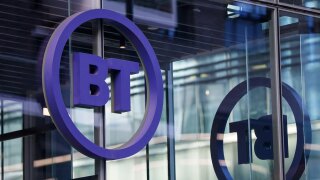The deal comprises a $1.1 billion infrastructure investment and a further $400 million for a 20% equity stake in Globalstar, giving Apple a significant lead in the market for direct-to-device satellite services, particularly in emergency and remote communication.
Subscribe today for free
Industry experts say the move is poised to impact the broader connectivity landscape, and according to Mohr-McClune: “This deal packs a competitive punch for virtually all corners of the connectivity ecosystem, from carriers to OEMs.
“It’s arguably the largest consumer OEM low Earth orbit (LEO) deal to date, and it puts Apple in a clear leading position among western OEMs for extended direct and mass-market voice satellite texting and calling services for both emergency and remote use cases.”
The agreement builds on Apple’s 2022 partnership with Globalstar, which initially gave iPhone 14 users access to Globalstar’s L-band satellites for emergency texting.
With this expanded arrangement, Globalstar will allocate 85% of its network capacity to Apple, using the funding to deploy a new satellite constellation, improve ground infrastructure, and secure global mobile satellite services (MSS) licensing.
This will support iPhone users in areas with little or no terrestrial network coverage, potentially accelerating Apple’s D2D communication capabilities.
The deal could also reshape incentives for mobile network operators, Mohr-McClune suggested.
“It’s now less likely that operators will need to seek their own satellite connectivity deals. Apple’s iPhone users will likely have faster, readier access to extended services, regardless of their wireless provider,” she says.
Despite the benefits, Apple’s B2C monetisation strategy remains uncertain.
“The OEM will probably continue to offer free satellite services with iPhone hardware in the short term, or at least until the end of 2025 for iPhone 14 users,” Mohr-McClune added.
RELATED STORIES
Sky's the limit: How hybrid satellite solutions are reshaping connectivity






